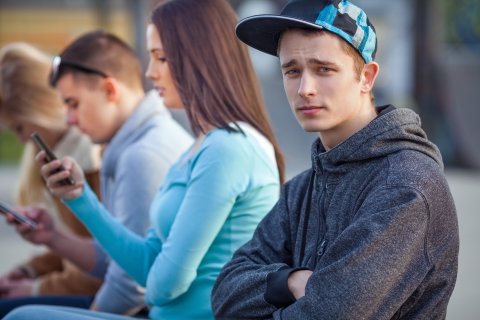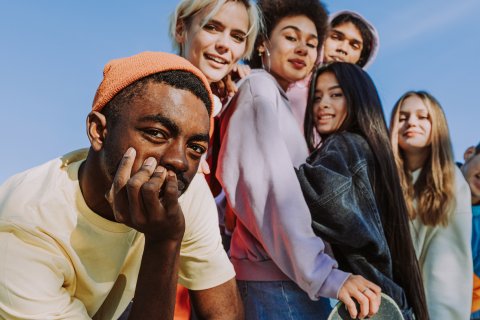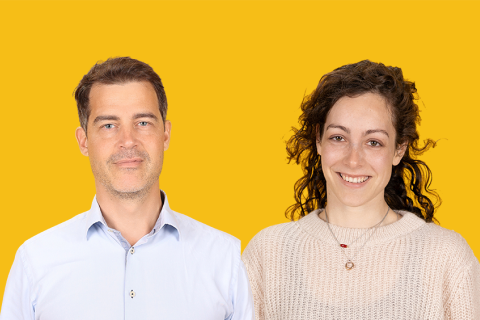Becoming Adults in a Changing World
Young people are the innovators of tomorrow. As the citizens, professionals and policymakers of the future, they will be at the forefront of social progress. But the world in which young people are growing up is changing rapidly. The research community “Becoming Adults in a Changing World” contributes to youth welfare by promoting research and activities concerning the phase between adolescence and adulthood (ages 12–24) and the rapidly changing world in which the young people of today are growing up. Digitalisation, climate change, economic innovation and globalisation all have a major impact on the well-being and behaviour of young people and the way they look to the future.
Becoming adults

Early adulthood is the phase in which young people take greater control of their lives. This control can be witnessed in four areas:
- After completing secondary school, young people progress to further education. It is in this phase that young people take their first steps towards choosing a career and forging their professional identity, before transitioning to a job that grants them financial autonomy and finding an affordable place to live.
- Becoming an adult also involves experiments in personal interactions and relationships with peers – both platonic and romantic. Young people’s relationships with their parents and teachers also transform in this phase. Their attention shifts to their peers, and they join various types of 'groups'.
- In this environment, in which they are surrounded by a diverse group of people, young adults start to find their own feet: they discover their personal, gender, medical, religious and cultural identities and how to make their way in the world. Moreover, they figure out not only what makes them unique, but also what binds them to other people.
- Lastly, early adulthood is a phase in which young people learn to use their own voice and more frequently express their opinion on a variety of issues. In addition to pursuing a say in ethical or medical dilemmas, such as the vaccination debate, young people also seek greater political influence and legal rights.
Changing world

Becoming an adult is not an individual process, but one that is closely bound up with the global, economic, digital and ecological context in which young people come of age circa 2022–2023. Firm career plans and job security are no longer guarantees for a stable future. Another factor is that young people are living in a society that is increasingly online and dominated by apps and social media. Furthermore, more attention is being paid in this day and age to ethic and sexual diversity. While this opens the door to greater personal freedom, it can also lead to increased polarisation. Finally, climate change is forcing young people to think about their lifestyle and behaviour choices, while the ecological dilemmas that they are faced with add further pressure.
Youth panel
That is why we have set up a youth panel to ensure that young people are closely involved in the research conducted in the context of this community. Climate change, gender equality and diversity are themes that matter to young people and in which they want to have a say. Do they have sufficient opportunities to make their voices heard? Are their rights adequately protected, or do we need additional legislation and regulations to give young people greater input? Besides asking the young people on the youth panel about their opinions and experiences, we also organise activities where they can meet peers and researchers.
The research community 'Becoming Adults in a Changing World' is broad and multifaceted. It encompasses research by social scientists, veterinarians, forensic developmental psychologists, sociologists, climatologists, historians, behavioural scientists, exact scientists and others. The focus is on interdisciplinary cooperation and the bundling of expertise. In addition, the community is in active contact with social partners and practical experts from the public sector, youth welfare services, youth organisations, child and adolescent mental health services, climate sciences and addiction care.

If you want to learn more, join our community or stay informed? Then send an email to:

